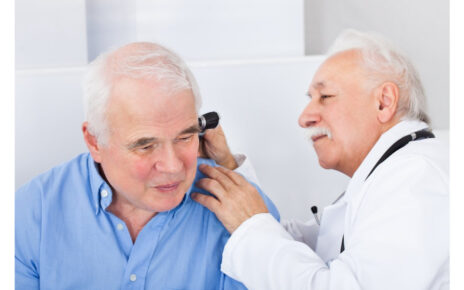Urinary incontinence, the involuntary leakage of urine, is a common but often overlooked condition that affects people of all ages. While causes vary, ranging from aging and childbirth to obesity and underlying medical conditions, the impact is consistently life-altering. Beyond physical symptoms, it can lead to emotional stress, diminished confidence, and social withdrawal. Recognizing these effects highlights the need for compassionate, comprehensive care. By understanding the root causes and embracing a holistic approach, we can better manage symptoms and support overall well-being.
The Role Of Hormone Replacement Therapy (HRT) In Managing Urinary Incontinence
Hormone Replacement Therapy (HRT) can be a valuable option for managing urinary incontinence in post-menopausal women. As estrogen levels drop, tissues in the bladder and urethra may weaken, contributing to leakage. HRT, especially in local forms like creams or vaginal rings, can help restore tissue health and improve control. Studies show that estrogen therapy may enhance urethral sphincter function, reducing symptoms. However, HRT isn’t right for everyone—it’s important to consult a healthcare provider to assess benefits versus risks, such as potential links to cancer or heart issues, and find the safest, most effective approach.
Weight Loss And Its Effect On Urinary Incontinence Symptoms
Weight loss is a key factor in reducing urinary incontinence symptoms, especially for those who are overweight or obese, according to Northwest Continence Center, https://nwcontinence.com/, which puts added pressure on the bladder and surrounding muscles, worsening urinary incontinence and leakage. Shedding even a small amount—just 5–10% of body weight—can significantly ease symptoms. Regular physical activity like walking, swimming, or yoga not only aids in weight loss but also strengthens the pelvic floor. Pairing exercise with a nutrient-rich diet of fruits, vegetables, and lean proteins supports both weight control and bladder health, making it a powerful strategy for managing urinary incontinence naturally.
The Connection Between Hormones And Weight Management
Hormones play a crucial role in regulating weight, and this connection is particularly evident in the context of urinary incontinence. Hormonal imbalances can lead to weight gain, which, as discussed, can exacerbate incontinence symptoms. Understanding this relationship can help in devising effective management strategies.
For instance, during menopause, the decrease in estrogen levels can lead to weight gain, particularly around the abdomen. This not only impacts urinary health but can also increase the risk of other health issues. By managing hormonal levels through therapies like HRT, individuals can better control weight, subsequently alleviating incontinence symptoms.
Moreover, hormones like insulin and cortisol also influence weight. Insulin resistance can lead to weight gain, while high cortisol levels, often due to stress, can cause fat accumulation. Addressing these hormonal imbalances can aid in weight management, further supporting urinary health.
Combining HRT and Weight Loss Strategies For Optimal Health
The synergy between HRT and weight loss strategies offers a comprehensive approach to managing urinary incontinence. By addressing both hormonal imbalances and excess weight, individuals can experience a significant reduction in symptoms and an overall improvement in health.
A personalized plan that includes HRT, tailored to one’s specific needs, combined with a structured weight loss program, can be particularly effective. This dual approach not only targets the root causes of incontinence but also enhances overall well-being, providing a holistic solution.
It’s essential to work closely with healthcare professionals to develop a plan that considers individual health needs and goals. Regular monitoring and adjustments to the plan can ensure that the strategies remain effective and aligned with changing health dynamics.
Lifestyle Changes To Support HRT and Weight Loss
Lifestyle changes are fundamental in supporting hormone replacement therapy (HRT) and weight loss efforts. Small, consistent adjustments can lead to significant improvements in urinary health and overall well-being. As per Forever Young in Gulfport, MS, HRT adopting habits such as a fiber-rich diet to prevent constipation, limiting bladder irritants like caffeine and alcohol, engaging in regular physical activity, including pelvic floor exercises, and practicing stress-reducing techniques like yoga or meditation can significantly enhance hormonal balance and urinary function. By integrating these lifestyle changes, individuals can improve the effectiveness of HRT and weight loss strategies, leading to better management of urinary incontinence.
Future Research Directions In HRT Weight Loss And Urinary Health
The field of urinary health is continually evolving, with ongoing research exploring new treatments and interventions. Future research directions hold promise for more personalized and effective approaches to managing urinary incontinence.
Emerging studies are focusing on the genetic factors that contribute to incontinence, which could lead to targeted therapies tailored to individual genetic profiles. Additionally, advancements in HRT, such as bio-identical hormones, offer the potential for more effective and safer treatment options.
Research is also examining the role of gut health in weight management and hormonal balance, providing new insights into comprehensive strategies for urinary health. These developments could revolutionize the way we approach urinary incontinence, offering hope for more effective solutions.
Conclusion: Embracing A Holistic Approach To Urinary Incontinence
In conclusion, managing urinary incontinence requires a comprehensive and holistic approach. By combining HRT, weight management, and lifestyle changes, often with support from a trusted weight loss clinic, individuals can significantly improve their symptoms and overall health.
It’s essential to remember that each person’s journey is unique, and what works for one may not work for another. However, with the right strategies and support, effective management of urinary incontinence is within reach.
If you’re facing challenges with urinary incontinence, consider reaching out to healthcare professionals who can guide you in developing a personalized plan. Take the first step towards optimizing your health and enhancing your quality of life.




